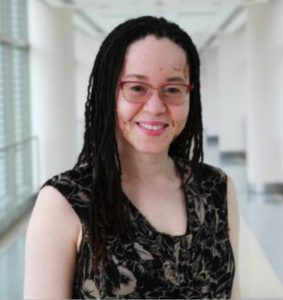
[Reprinted: The Gleaner, 4-26-2020]
Jamaica is taking the right steps to combat the killer coronavirus, believes the Jamaica-born US-based doctor who has pioneered the concept of using the blood plasma of recovered COVID-19 patients to treat the contagion.
And Dr Khamille West was not alone in her praises. The Caribbean nation was also hailed by the World Health Organization for its strategies to contain the spread of the virus.
“I have been avidly watching how Jamaica is handling the COVID-19 pandemic situation, and I am very proud of the proactive and decisive steps being taken to limit the spread of the virus. Personally, I would encourage the health sector, the nation’s leaders and the Jamaican people to band together and look out for one another during the challenging times ahead. The measures taken are not easy, but if we all do as much as we can to help each other meet our basic needs, Jamaica will emerge from this crisis as an example to the world,” declared the blood services section chief in the Department of Transfusion Medicine at the National Institute of Health (NIH) in Maryland, US.
West, who was in Jamaica offering advice and working to keep fatalities related to the virus at a minimum in February this year, has been brought to the forefront of the American war against the virus after she revealed that the blood plasma of recovered COVID-19 patients could prove to be an essential cog in the wheel in the battle to restore normality in the present health pandemic, which has been responsible for more than 50,000 deaths in that country.
She is currently leading a clinical trial in the study.
“If you have an infection, your body’s natural immune system makes antibodies to fight against the virus. Antibodies are proteins that your immune system makes that can kill the virus and help you to recover. If you recover from the infection, your blood is likely to have antibodies against the virus. Blood is made of liquid plasma, and blood cells; the antibodies are found in the plasma,” West explained to The Sunday Gleaner, adding that more work has to be done to ensure that blood plasma treatment will be thoroughly effective.
“The basic idea is that plasma from people who have recovered from COVID-19 may contain antibodies against the virus, and that if you give the plasma to patients who are very ill with the disease, the antibodies in the plasma may help fight the virus in those patients.”
She continued, “Although promising, this plasma treatment has not yet been proven to always help patients with COVID-19. We think it might help, because in early studies in a very small number of people, some patients have improved with this treatment. If we can get more information by studying the treatment, we can get a better idea of whether it is helpful for patients.”
Her theory is being explored by health officials in the United States.
As a doctor working on the forefront of the battlefield against this new coronavirus, Dr West is exposed to the highly infectious disease and has to ensure that she remains untainted to continue her work in the aiding of mankind’s recovery from this catastrophe.
“Like all medical personnel, we are taking precautions, including social distancing and the use of personal protective equipment, such as masks,” she said.
Thankfully, she has not yet been put in a position to decide who lives and who dies.
PROUD OF JAMAICAN ROOTS
Khamille West grew up in Kingston 6.
“I graduated from Campion College in 2000. I pursued my medical degree (MBBS) at The University of the West Indies (Mona campus), and graduated in 2005 as valedictorian with a first class honours degree. I am very proud of my UWI education; I think it has served me well both at home and abroad,” she shared.
She then completed a year of internship at the Kingston Public, Victoria Jubilee and Bustamante children’s hospitals.
“I learnt many vivid and valuable lessons during internship that have stayed with me for well over a decade. I spent the next three years working at The University Hospital of the West Indies, as a senior house officer, then as a resident in the pathology department. Again, I am thankful for all I have learned from the accomplished faculty there,” she said.
In 2009, West left Jamaica to pursue postgraduate medical education in New York, specialising in pathology. She graduated in 2013, after serving as chief resident. After completing a two-year subspecialty fellowship in transfusion medicine at the NIH Clinical Center, she is currently the chief of the Blood Services Section at the NIH Clinical Center Department of Transfusion Medicine.
“I am currently leading other studies here at NIH related to blood donation and blood safety. I visit home often and continue to collaborate with medical professionals in Jamaica,” West said.